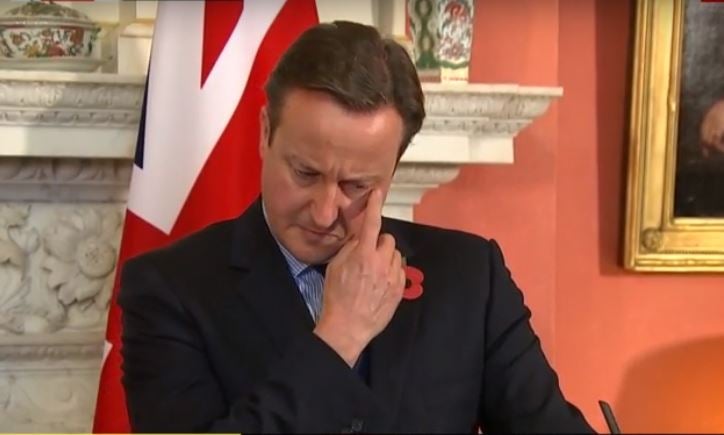David Cameron made to look awkward in front of Egyptian President as he is grilled over decision to suspend flights
The Prime Minister did not inform President al-Sisi of his decision to ground all flights to and from Sharm el-Sheikh

Your support helps us to tell the story
From reproductive rights to climate change to Big Tech, The Independent is on the ground when the story is developing. Whether it's investigating the financials of Elon Musk's pro-Trump PAC or producing our latest documentary, 'The A Word', which shines a light on the American women fighting for reproductive rights, we know how important it is to parse out the facts from the messaging.
At such a critical moment in US history, we need reporters on the ground. Your donation allows us to keep sending journalists to speak to both sides of the story.
The Independent is trusted by Americans across the entire political spectrum. And unlike many other quality news outlets, we choose not to lock Americans out of our reporting and analysis with paywalls. We believe quality journalism should be available to everyone, paid for by those who can afford it.
Your support makes all the difference.David Cameron was made to look awkward as he was put on the spot in front of the Egyptian president about the UK’s decision to suspend all flights to and from Sharm el-Sheikh.
The Prime Minister shook his head as a British journalist asked President al-Sisi whether he was unhappy with Mr Cameron for failing to inform him of the decision to ground all flights and asked whether the decision suggested that Egyptian authorities were unable to run a secure airport in Sharm el-Sheikh.
Officials made sure there was minimal fuss at the press conference following talks between the two leaders in Downing Street, with only one journalist from each of Britain and Egypt invited in to ask questions at the so-called press conference.
Critics said the refusal to hold a full press conference mirrored President al-Sisi's authoritarian crackdown on journalists in Egypt.
Some 40,000 dissenters have been jailed and an estimated 1,000 people killed since President al-Sisi imposed his crackdown on dissent, with hundreds of journalists who have been deprived of a fair trial.
President al-Sisi insisted the airport was safe and revealed that British officials requested Egyptian authorities to ensure all security procedures were adequate 10 months ago.
Mr Cameron firmly refuted the questions and said the United States had also taken action and said it was his responsibility to act in the “right way to keep British citizens safe and secure and to put their security first”.
He said it was impossible to know for certain whether a terrorist brought down the Russian plane that crashed over the Sinai but said he was right to act in the way he did because the intelligence and judgement from the security agencies suggested that was a “more likely-than-not” outcome.
Despite reports suggesting a more hostile response in private, President al-Sisi insisted in public that he understood Mr Cameron’s concerns over security.
He said: “I show complete understanding of his concern about the safety and security of his people; we responded immediately to demands and received the team to Sharm el-Sheikh airport and we are completely ready to cooperate with all our friends to make sure that the security measures taken at our airport provide the safety and security for the people who come to us."
Join our commenting forum
Join thought-provoking conversations, follow other Independent readers and see their replies
Comments